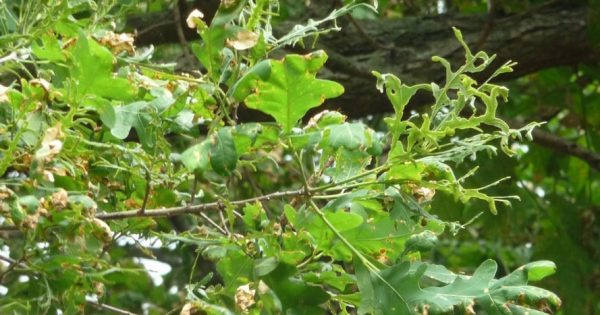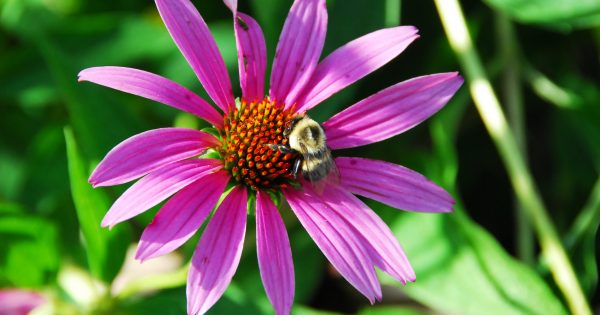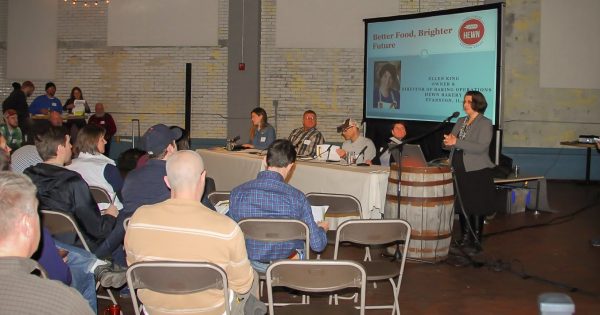August 3, 2017 | Blog Post
PRN is working with individuals, researchers, NGO’s, local businesses, and farmers throughout Illinois who want to improve the way farming is done.
Agriculture
Pesticide Use and the Threat to Our Living Systems
July 26, 2017 | Blog Post
Here in Illinois we have heard from many of you that have seen the tell-tale effects of growth regulator herbicides (like Dicamba and 2, 4-d) on crop fields, forested areas, and on rare roadside/railside prairies.
Widespread Dicamba Herbicide Use Threatens Midwest Crops and Habitat
April 7, 2017 | Blog Post
The use of dicamba herbicide will be greatly expanded in the Midwest this year with the planting of dicamba resistant soybeans on millions of acres. Dicamba has been registered for use since 1965 and is sold widely in hundreds of products for broadleaf weed control for crops, rights of ways, and lawns. The increased use this year threatens specialty crops, prairie, and pollinator habitat.
Farmer Baker Brewer Summit highlights local grains
A farmer, a baker, a brewer, and a distiller walk into an old bakery… It sounds like the setup to a joke, but earlier this month 50 farmers, bakers, brewers and distillers all walked into an historic Alton bakery (now the Old Bakery Beer Company) to talk about something they all have in common – […]
IL Farm Bureau commits money to reduce nutrient pollution
The Illinois Farm Bureau is committing $100,000 to a new grant program to help county Farm Bureaus implement strategies next year that will improve soil health and water quality and reduce fertilizer runoff in their area. The grant program is designed to engage county Farm Bureaus in the effort to increase nutrient stewardship practices by […]










